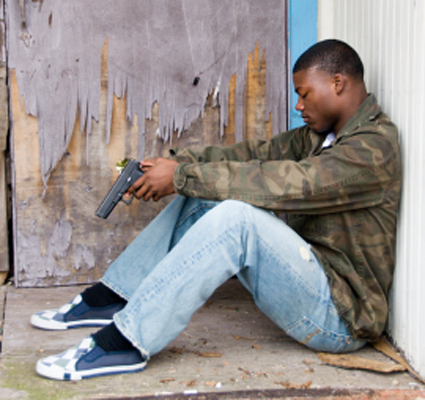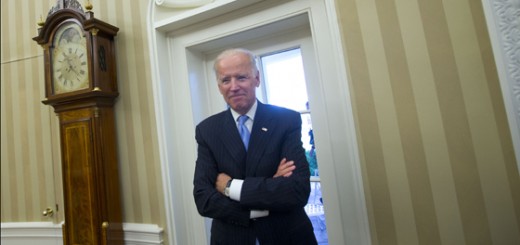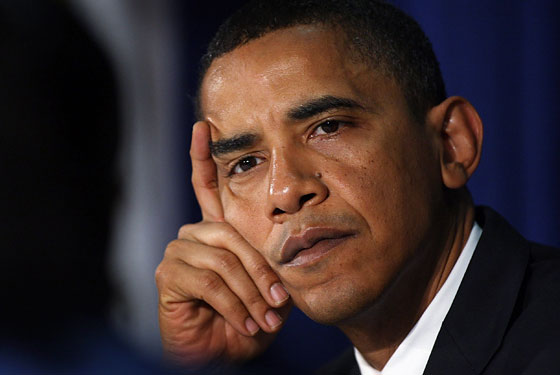What about the Trayvon Martins whose names we’ll never know?

One thing, and one thing only, is certain about the Trayvon Martin case in Florida. A young African-American male died under tragic circumstances. The rest remains to be sorted out.
Predictably, the professional race industry is out on the matter in force. The Rev. Al Sharpton and the Rev. Jesse Jackson practically wrestled each other in order to stand closer to Trayvon Martin’s family. At a church in Eatonville, Florida Jesse Jackson called Trayvon Martin a “martyr.” As is their long-standing practice, these race hustlers are using tragedy, in this case the death of a young black kid, as a tool for the advancement of their own agendas and their own very personal interests.
The script is tired and cliché but it doesn’t matter. According to the race industry, Trayvon Martin’s death is further proof of deep-seated white racism. It’s proof that white people want to keep black people down and that the country has made little progress from the days of segregation.
The truth stands in sharp contrast to this tired narrative. To the extent that white racism continues to be a barrier for young men like Trayvon Martin, it is by no means the biggest barrier or even close. The real enemy of young black kids is illegitimacy and the resulting fatherless homes.
Among blacks, 72 percent of births are to unmarried women, up from 26 percent in 1960. The lack of fathers to provide male validation to young boys leads to the seeking of such validation from gangs. Virtually 100 percent of gang members come from homes without a father. It is true that young black men are dying. But what Sharpton and Jackson don’t say is that the majority of the murders committed against young black men are committed by other young black men. A black kid who joins a gang in his teens stands an appallingly poor chance of seeing his 25th birthday.
Eighty five percent of youths in prison come from fatherless homes, as do 80 percent of rapists. Seventy one percent of high school dropouts are fatherless, as are 63 percent of teen suicides.
According to an article by Barbara Dafoe Whitehead in The Atlantic, when you control for family configuration, the relationship between race and crime and low income and crime disappears.
Yet, as pervasive and obvious as the problem is, it is almost impossible to talk about. Former New York senator Daniel Patrick Moynihan, no right winger, was branded as a racist in the mid 1960s for simply calling attention to the connection between the prevalence of single black motherhood and the low socioeconomic and academic standing of black children.
None of this is intended to change the subject with respect to Trayvon Martin. George Zimmerman shot Trayvon in self-defense, or shot him in cold blood or shot him by accident. We don’t yet know. What we know is that Trayvon Martin is dead, just days after his 17th birthday.
If Jesse Jackson and Al Sharpton want to decry the death of a young black man, power to them. At least we know Trayvon Martin’s name. But for all the noise about Trayvon Martin, who is speaking on behalf of the thousands of other young black kids — kids whose names we’ll never know — who will die this year at the hands of gang members and criminals and young thugs? Who will call out the fact that this pathology breeds and grows in the Petri dish of a fatherless home?








awesome segment, keep up the great work, I’m glad someone has the guts to tell the truth.
Glad someone finally said it. Maybe you should run for president.
It is a tragedy that a boy lost his life, but the bigger tragedy is the Sharpton’s and Jackson’s are using this to drive a bigger wedge between people, not to get to the TRUTH of the matter but to race bait. The Sharpton’s and Jackson’s of this world have been making a living off the backs of blacks by this kind of manipulation for YEARS and haven’t done a thing but set blacks back instead of moving them forward. They do not want blacks to move forward, for when they do, there will be no further use for the Sharpton’s and Jackson’s and their kind of tactics. If the Sharpton’s and the jackson’s of this world REALLY wanted to HELP blacks they would do something about the gang violence around the country. Why isn’t the death of blacks in Chicago or Detroit or other big cities as much an outrage as the killing of Trayvon Martin? Because it was black on black killings or what? Many INNOCENT kids have been killed in these gang shootings…where is the outrage from sharpton and jackson over this? Is there something I am missing here? A life or lives were taken in each instance. Is not one life as worthy as the next one? Why then is the Trayvon Martin tragedy more worthy of sharpton and jackson’s outrage?
The other side of this tragedy is a man’s life hangs in the balance because of the media frenzy egged on by the likes of sharpton, jackson and obama. There are two sides to every story and I can see both sides. I heard the 911 call(the untouched one)and if I were to lay blame on anyone, it would be both equally. First, Mr. Zimmerman was a neighborhood watchman. People in the neighborhood had been having a rash of breakins which the police have not been able to catch the people doing it. Put yourself in Mr. Zimmerman’s shoes for a moment. Here you call 911 to report a suspecious person, knowing the person was going to be gone by the time the police arrive, so you follow that person so the police can question him. This was after the 911 operator says it wouldn’t be a good idea. This is the first mistake. The second was letting the boy get close enough to hit you, which he should not have done. My take is that if he was innocent of any wrongdoing, why didn’t he just wait with Mr. Zimmerman for the police? BOTH people are equally at fault here. And as far as being unarmed? Fists can be just as deadly as a gun, you CAN beat someone to death. Whatever the TRUTH is, it doesn’t matter because of sharpton and jackson’s race baiting. THIS is the true tragedy!
One of the biggest problems with gang violence is our justice system not supporting the police department in their efforts. I always ask the question, “If I can see film and documentaries on the gangs and their activities/locations in America, why can’t they clean it up.”
I see them all the time filming these young gang members flashing gang signs, showing their weapons which include everything the dems want to take from honest citizens. There is no doubt these guns were obtained by means other than honest, and most of those gang members aren’t old enough to own a gun anyway, so ARREST them. Make it a mandatory 10 year sentence, and when they get out, deport them if they are illegals. 1 to 2 year sentence is nothing to these thugs especially when they still conduct gang business while in prison.
While in prison, everytime they are caught participating in any type of gang activity, start their sentence over. Participating would include flashing known gang signs, or getting tattoos that are known gang identifiers. If they participate in any educational improvement (math, science, etc.), the time spent doing this could be deducted from the sentence. Nothing on TV, but educational channels, and exercise equipment use should be an earned privilege.
This would also shut down their drug business where their big money comes from. Make it VERY unattractive to be a member of a gang. Don’t spank their hands and turn them loose on the public again as has been happening for decades.
What angers me the most about this incident is that race-baiters like Jesse Jackson and Al Sharpton have soured Angry White America so much that there is almost an assumption that if they become involved there MUST be less to a story than is being reported.
The Black population should be outraged at these Race hustlers, who are living in a time warp and trying desperately to revive their relevance. The Revs. Jesse Jackson and Al Sharpton have done more to hurt the Blacks than any White person has ever done. These jackasses have proven their stupidity and lack of credibility so many times, but I will mention only 2 debacles: Tawana Brawley and Duke lacrosse. One would think that any intelligent person would take their Race-baiting antics with a grain of salt, rather than blindly getting behind them again, which only encourages them. Why can’t they see that they are being used by these clowns to further their own personal ambitions? There is no reason in the world that the Blacks cannot compete successfully in our free market society, except that these and other so-called civil rights activists have removed the two main ingredients for success: 1. Self-examination (If one has bad behavior or doesn’t perform academically, it is because of someone else and not the fault of the individual, and 2. Being able to take credit and feeling good about achievement (there is always the stigma that the person was only successful because of affirmative action, quotas, or some other type of preferential treatment). I have more confidence and respect in the God-given abilities and talents of the Blacks than their own so-called leaders, who evidently want to keep them on their plantation.
What? “Race hustlers” huh? Well, these black liberal cats who run to the current perceived racial injustice serve a great purpose you all should now concede. What holds too many blacks down is democrat policy. But these guys are not JUST attention whores seeking to promote their liberal/socialist agenda’s at every turn. Look at the Trayvon Martin case of which the whole of conservative talk radio is again silent. Where is Sean Hannity in his poorly disguised defense of the shooter/police??? SURPRISE! Police (a synonym and a symbol in the black community for white injustice, I hope you all saw Crash) corruption was discovered and the shooting of yet ANOTHER black male by a cop is now history.No, the shooter was not a cop per se but was so totally backed by them(dad and the rest) as to make him indistinguishable from them. Recall the kid not too long ago that got gunned down at his wedding party. the kid that got run down in a shower of cop bullets while with his new our future bride. Are these isolated, rare occurrences? Please. You all know good and well they are NOT. As far is whites doing less harm to blacks than the two reverends? Did you fall and bump your head? THAT is the funniest thing i have heard all week.
Then you speak of Affirmative action and the like you need more information so that you can come to the right conclusion…I don’t know what kind of doctor you are but i KNOW you must be smarter that what your comments reflect. AA, and other types of preferential treatments are the band-aid for decades of blacks and other minorities being denied admission it to colleges at ALL. How could you be so myopic? Additionally, have you ever attended an underfunded poor school in the inner city?? What chance so such kids have of attending college…I bet you attended the best schools your folks could afford.
And finally, my mother got in to USC because of her Hard work, her grades and affirmative action without which she would have been DENIED admission.
Once in, she was HELD TO THE ‘SAME STANDARDS as everyone else’ (you myope are fond of saying this right?) so when you say some black or other minorities were only successful because of affirmative action, you demonstrate extraordinary ignorance.
Whites discriminate for decades then black liberals come up with a terrible way to fix your mess and you blame the recipients of the solution. My prescription for you: Read more books…you have not been reading the right ones.